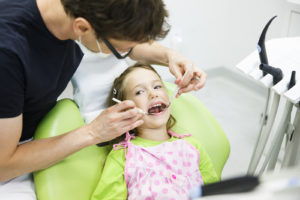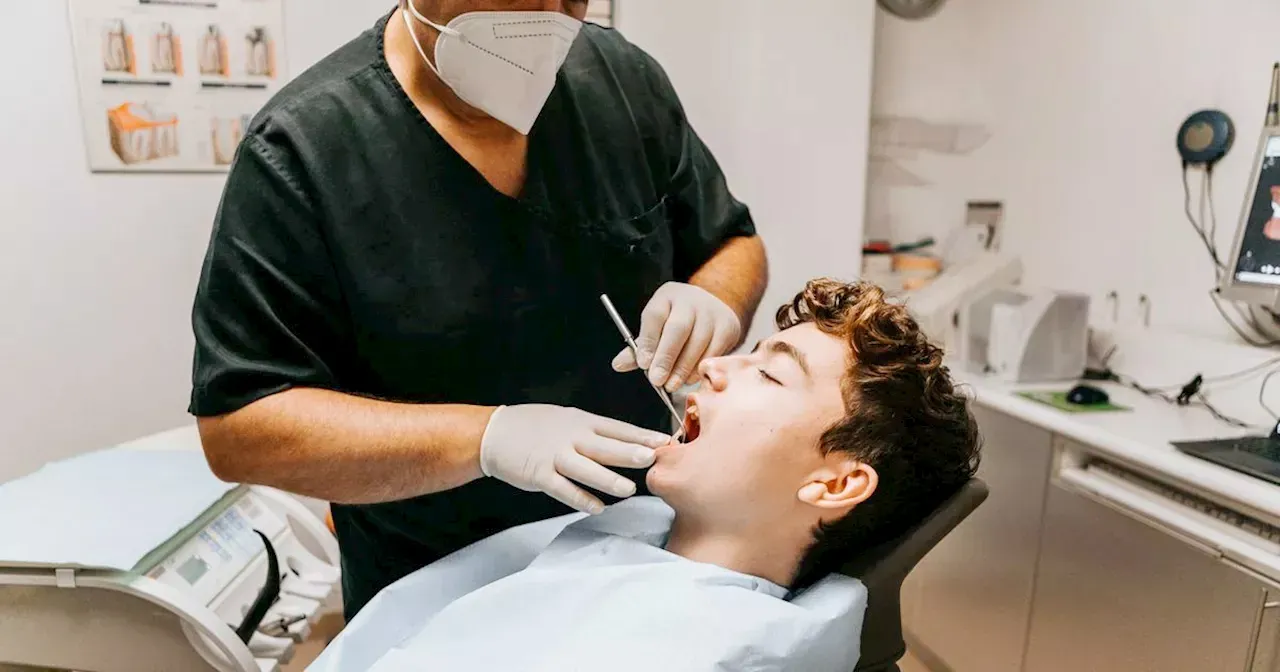
The sheer volume of children’s dental health resources can be overwhelming. As such, parents sometimes struggle to determine what’s best for their child’s dental health. At The Super Dentists, our goal is to help you keep your child safe, strong and healthy. We understand your child’s dental health is a top priority, and we’re here to provide a convenient resource so your son or daughter can enjoy a beautiful, healthy smile.
As part of our efforts to help parents, we recently put together the “Super Parent Report,” which highlights what every parent should know about his or her child’s dental health. Now, let’s look at three key takeaways from the report.
- Your child’s risk of heart disease goes up dramatically when oral care isn’t a priority.
Most parents are oblivious to the fact that poor oral health is one of the primary causes of major – and sometimes life-threatening – illnesses. To better understand this concern, consider gingivitis.
Gingivitis is a gum disease that causes irritation, redness and swelling around the base of the teeth. It occurs due to plaque, an invisible, sticky film that consists of bacteria that forms on the teeth. The longer plaque stays in place, the more likely it becomes that plaque will harden into tartar, which is exceedingly difficult to remove. Then, plaque and tartar cause the gingiva, the part of the gum on the base of the teeth, to become inflamed. This ultimately leads to tooth decay, periodontitis (serious gum infection) and tooth loss.
Additionally, the effects of gingivitis extend beyond the teeth. Studies indicate gingivitis is associated with a variety of health problems, including:
- Cardiovascular diseases
- Diabetes
- Hypertension
- Stroke
Anyone can develop gingivitis, but treating this problem is simple. In fact, parents who promote good oral health habits like brushing teeth twice a day, flossing daily and getting regular dental check-ups can help their kids correct or prevent gingivitis.
- Not brushing and flossing damages more than just teeth.
Brushing and flossing teeth generally take only a few minutes each day to complete. Kids who ignore regular brushing and flossing may be more susceptible than others to cavities, tooth decay and other oral health issues, and may face a greater risk of gum disease that could lead to cancer down the line.
Recent research from Harvard University and Imperial College London indicates there is an increased risk of cancer due to gum disease among those who do not brush and floss their teeth. The aforementioned research also shows these individuals face an increased risk of the following types of cancer:
- Pancreatic cancer (63%)
- Kidney cancer (50%)
- Lung cancer (33%)
- Blood cancers (30%)
Those who fail to brush and floss their teeth are at greater risk of heart disease than others, too. The Harvard University and Imperial College London research indicates individuals with poor oral hygiene face a 4.3% greater risk of heart disease than others. Furthermore, those who are dealing with periodontal disease have a 19% increased risk of heart disease in comparison to all others.
Clearly, brushing and flossing are crucial for kids and adults alike. Parents should ensure their children are brushing and flossing both regularly and properly. Otherwise, kids may put their long-term health at risk.
- Dental problems can affect your child’s education and future success.
Although kids may suffer colds, the flu and other illnesses during the school year, children sometimes miss school due to oral health problems. Consider the following statistics:
- 51 million hours of school are lost each year due to dental illness; this also means a parent who serves as a “head chauffeur” for his or her child misses 51 million work hours annually
- 59% of kids between the ages of 12 and 19 years old have had cavities in their permanent teeth
- 20% of children between the ages of 12 and 19 years old have untreated tooth decay
When it comes to your child’s education, every second counts. Research shows kids who are frequently absent score 10% worse on math and 8% worse on reading in comparison to children who attend school every day. But with a plan in place to take care of your child’s oral health, your son or daughter could avoid missed school-time due to oral health issues.
Critical Steps to Great Oral and Physical Health
You don’t need to be a superhero to be a super parent, especially when it comes to your child’s oral and physical health. Here are five critical steps to put your child on the path to great oral and physical health:
- Create and follow good habits. On average, it takes 66 days to develop a new habit. If you start getting your child into the habit of brushing and flossing his or her teeth, you can make it easy for your son or daughter to get into a healthy dental care routine.
- Brush and floss every day. Brush and floss every day – without exception. We recommend kids and adults brush their teeth at least two times every day for 2 minutes using a fluoride toothpaste, as well as floss their teeth at least once a day.
- Learn to brush and floss correctly. To brush the teeth properly, we recommend using a gentle circular technique and a soft touch, along with committing at least 2 minutes to brush the teeth. Comparatively, to floss properly, wrap the dental floss around the fingers. Then, gently move the dental floss along each tooth, making a C shape. Finally, move the dental floss up and down to the gumline.
- Make things fun. Brushing and flossing do not have to be a chore. A parent can make brushing and flossing a fun activity by turning it into a game, encouraging a child to mimic the parent’s actions, playing music and much more.
- Don’t be embarrassed. If you are unsure about the best ways to take care of your child’s oral and physical health, it is vital to remember that you’re not alone. Research indicates 75% of parents don’t know when to take their child to the dentist for the first time. Meanwhile, the American Dental Association (ADA) recommends parents take their child to the dentist after his or her first tooth appears, or no later than the child’s first birthday.
Choosing the right dentist may prove to be difficult. As a parent, you’ll want to allocate plenty of time and resources to find the right dentist for your child. Lucky for you, we’re here to help you streamline your search for the right dentist. Here are some questions to consider as you evaluate a dentist for your son or daughter:
- Is the dentist a pediatric dentist? Pediatric dentists are focused on preventative dental care and can offer various recommendations and suggestions to help you give your child the best chance to develop positive oral health habits that will last a lifetime.
- Is the dentist’s office multi-specialty? A dental office that has practitioners with multiple specialties under a single roof offers unprecedented oral health expertise and support.
- Is the dentist’s office a kid-friendly environment? Taking your child to a kid-friendly dental office boosts the likelihood of a positive experience and reduces the risk that your son or daughter may dread dentist appointments in the years to come.
- Is the dentist’s office a fun place to go? A fun dental office is a comfortable environment for kids and will help them feel relaxed as they receive dental care.
- Do the dentist and staff try to develop a relationship with a child? The dentist and his or her staff should strive to do everything possible to learn about a child and provide him or her with exceptional dental care at all times.
The Super Dentists have been giving kids in San Diego County super smiles for more than two decades. Our pediatric dentistry, orthodontic specialists and parent dentistry professionals strive to provide kids and parents with outstanding support time and time again. That way, we deliver amazing care that results in healthy smiles, beautiful faces and a strong sense of confidence and self-esteem. To find out more, please contact us today.









